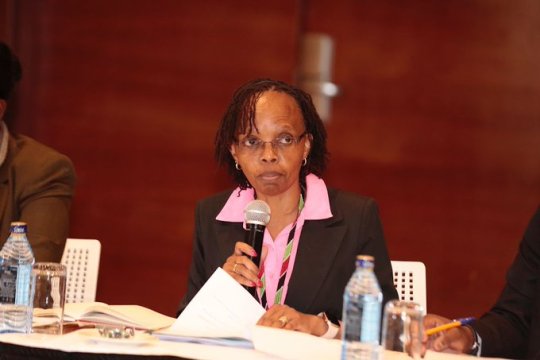
KUCCPS Prohibits Universities from Changing Fees Until Completion of Four Academic Years
In a recent media sensitization workshop on the student placement process and the new higher education funding model, Dr. Mercy Wahome, the CEO of the Kenya Universities and Colleges Central Placement Service (KUCCPS), announced that universities would be forbidden from revising fees for courses until a student completes four academic years.
This decision aims to ensure the effectiveness of the new funding model.
According to Dr. Wahome, universities will only be allowed to revise their fees for the subsequent cohort after engaging in consultations.
This means that even if the cost of studies decreases, students will still be required to pay the same amount for the following four years.
However, universities are permitted to adjust their fees for each intake, resulting in potential variations in course costs for each cohort.
Funding the Students, Not the Universities
Dr. Wahome emphasized the importance of funding students rather than universities to avoid compromising on quality.
By focusing on student funding, the authorities aim to prevent universities from prioritizing financial gains over educational excellence.
This approach is expected to address the declining quality of education and the growing debt burden faced by universities.
Geoffrey Munari, the CEO of the University fund, supported the new funding model as a remedy to the deteriorating quality of education and the mounting debt crisis.
Acknowledging the rapid growth of university debt, Munari emphasized the need for a comprehensive solution.
President William Ruto introduced the new funding model to tackle the debt crisis afflicting public universities.
The government plans to raise the university allocation from Ksh54 billion to Ksh84.6 billion in the 2023/24 financial year.
Under the new model, students will be categorized into three groups: Vulnerable, Less Vulnerable, and Able, and will receive funding according to their category.
Government-Sponsored Students
President Ruto announced that the new funding model would come into effect in the upcoming education year.
Additionally, all continuing government-sponsored students will receive support based on the previous model.
Instead of providing block funding to universities and technical and vocational education and training institutions (TVETs) using a differentiated unit cost, the funding for students will combine scholarships, loans, and household contributions on a graduated scale.
Conclusion
The decision to restrict fee revisions until the completion of four academic years aims to ensure stability and predictability in university fees.
By prioritizing student funding and implementing the new funding model, the government aims to address the quality of education, reduce the burden of university debt, and allocate financial support based on students’ vulnerability levels.
These measures are expected to contribute to the overall improvement of Kenya’s higher education system.
KUCCPS Prohibits Universities from Changing Fees Until Completion of Four Academic Years

